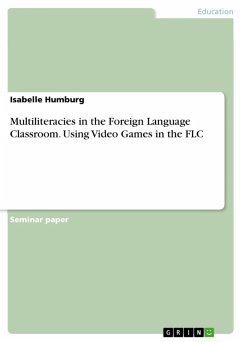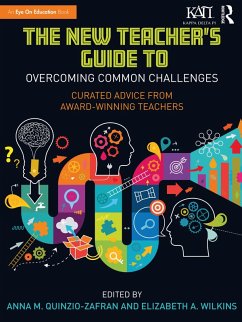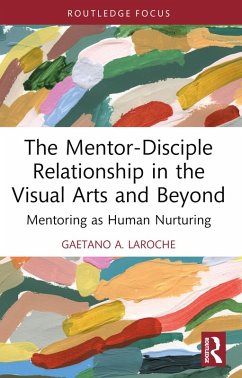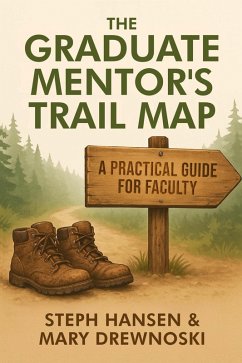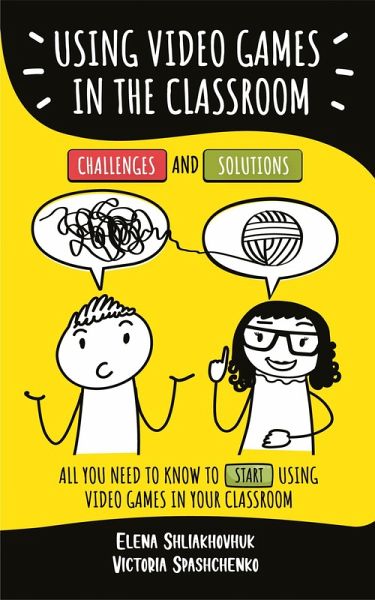
Using Video Games in the Classroom. Challenges and Solutions (eBook, ePUB)
Sofort per Download lieferbar
4,99 €
inkl. MwSt.

PAYBACK Punkte
0 °P sammeln!
Video games are increasingly considered to be an extremely powerful education instrument that can be used to prod students to think creatively, solve complex problems, rethink, alter and experiment with strategies, and work together to complete creative learning projects.When used correctly, video games can add a lot to the classroom, simultaneously teaching students concepts and skills in new, meaningful ways and allowing them to have fun in the process. Angry Birds, Minecraft, Civilization, SimCity, World of Warcraft, and many many other games teachers and educators use to teach a wide range...
Video games are increasingly considered to be an extremely powerful education instrument that can be used to prod students to think creatively, solve complex problems, rethink, alter and experiment with strategies, and work together to complete creative learning projects.
When used correctly, video games can add a lot to the classroom, simultaneously teaching students concepts and skills in new, meaningful ways and allowing them to have fun in the process. Angry Birds, Minecraft, Civilization, SimCity, World of Warcraft, and many many other games teachers and educators use to teach a wide range of subjects from math and science to teamwork and compassion.
If they can, will you?
This is your time to level up!
Yet, as with any new instructional tool, teachers often report barriers and challenges to the integration of video games into the classroom.
Some say they need more technical and financial resources, more support from parents and administrations, or more knowledge about teaching, learning and assessing with video games. Others are afraid of toxic gaming culture, worry about cybersecurity, or are uncertain about exactly how to teach in a DGBL classroom. Some of these reported problems are physical barriers, some are cultural, and some are perceptual. What they all have in common, however, is that they paralyse us, reducing our motivation and keeping us from advancing to a video-game classroom.
Now, what if we were to shift the focus of our attention from what is missing to what is already in place?
Then we would probably stop talking about problems and start discussing solutions! There are things that have been working, resources that can be mobilised, and people who will support us to achieve our goals.
This self-help book discusses the most challenges (not barriers!) that fellow teachers have faced when trying to integrate video games into their classrooms.
This book also invites you to explore opportunities and generate solutions using the vocabulary of the Solution-Focused Approach (SFA). SFA language is very different from that of the classic problem-focused approach! SFA questions are designed to let you have a better and more productive dialogue with yourself and others so that you concentrate on the desired results.
This is exactly what teachers who integrate educational technologies into the classroom need. To transform problem-dominated talk about education technology into a fascinating "research" process for developing solutions that help realise our preferred changes.
Just imagine: you will bring together all the competing elements needed to start teaching with video games, transforming yourself into a cool teacher for your students and a reputed innovator and edtech influencer for your colleagues. Or you may simply take up a new, modern hobby.
Integrating any new technology into the classroom is undoubtedly a multi-faceted challenge. But rest assured, this new technology can work for you. You can convert your classroom into a place of exploration where you push the boundaries of digital-games-based learning and teaching. All you need is this self-help book.
Using video games in the classroom. Challenges and Solutions is your tested starting point for successful digital-game-based learning and teaching.
When used correctly, video games can add a lot to the classroom, simultaneously teaching students concepts and skills in new, meaningful ways and allowing them to have fun in the process. Angry Birds, Minecraft, Civilization, SimCity, World of Warcraft, and many many other games teachers and educators use to teach a wide range of subjects from math and science to teamwork and compassion.
If they can, will you?
This is your time to level up!
Yet, as with any new instructional tool, teachers often report barriers and challenges to the integration of video games into the classroom.
Some say they need more technical and financial resources, more support from parents and administrations, or more knowledge about teaching, learning and assessing with video games. Others are afraid of toxic gaming culture, worry about cybersecurity, or are uncertain about exactly how to teach in a DGBL classroom. Some of these reported problems are physical barriers, some are cultural, and some are perceptual. What they all have in common, however, is that they paralyse us, reducing our motivation and keeping us from advancing to a video-game classroom.
Now, what if we were to shift the focus of our attention from what is missing to what is already in place?
Then we would probably stop talking about problems and start discussing solutions! There are things that have been working, resources that can be mobilised, and people who will support us to achieve our goals.
This self-help book discusses the most challenges (not barriers!) that fellow teachers have faced when trying to integrate video games into their classrooms.
This book also invites you to explore opportunities and generate solutions using the vocabulary of the Solution-Focused Approach (SFA). SFA language is very different from that of the classic problem-focused approach! SFA questions are designed to let you have a better and more productive dialogue with yourself and others so that you concentrate on the desired results.
This is exactly what teachers who integrate educational technologies into the classroom need. To transform problem-dominated talk about education technology into a fascinating "research" process for developing solutions that help realise our preferred changes.
Just imagine: you will bring together all the competing elements needed to start teaching with video games, transforming yourself into a cool teacher for your students and a reputed innovator and edtech influencer for your colleagues. Or you may simply take up a new, modern hobby.
Integrating any new technology into the classroom is undoubtedly a multi-faceted challenge. But rest assured, this new technology can work for you. You can convert your classroom into a place of exploration where you push the boundaries of digital-games-based learning and teaching. All you need is this self-help book.
Using video games in the classroom. Challenges and Solutions is your tested starting point for successful digital-game-based learning and teaching.
Dieser Download kann aus rechtlichen Gründen nur mit Rechnungsadresse in A, B, CY, CZ, D, DK, EW, E, FIN, F, GR, H, IRL, I, LT, L, LR, M, NL, PL, P, R, S, SLO, SK ausgeliefert werden.





